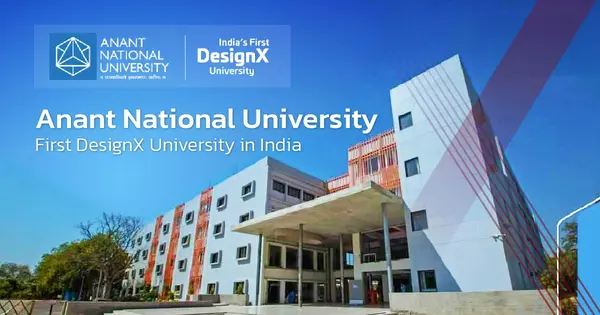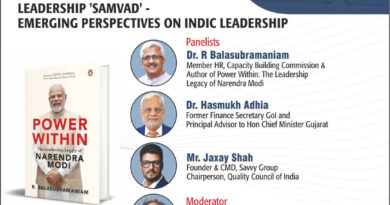Anant National University Reveals Impact of Digital India on Gujarat’s Youth
Research highlights gender dynamics, digital usage trends, and policy needs across urban and rural regions
BILKULONLINE
Ahmedabad, April 17: Anant National University presented key findings from an ICSSR-funded research project examining the impact of the Digital India initiative on urban and rural youth in Gujarat. The insights were unveiled during a Research Dissemination Workshop held on campus.

Research Overview and Methodology
Led by Dr Subhalaxmi Mohapatra and Dr Diti Pundrik Vyas of Anant National University, along with Prof Subhadip Roy of IIM Ahmedabad, the study analysed data from 450 respondents across Gandhinagar and Kutch using a mixed methodology approach. Quantitative analysis was complemented with qualitative insights derived through thematic analysis.

Key Findings: Bridging the Digital Divide
The study found that digital payment platforms like UPI and Google Pay have bolstered financial inclusion, especially among urban youth. While men largely use these platforms for financial services, urban women are increasingly leveraging digital tools to grow entrepreneurial ventures. Social media was found to be a major enabler of self-expression and civic engagement among the youth.
Panel Discussion: Multidimensional Impact
The workshop included a panel moderated by Prof Subhadip Roy and featured Rohit Kumar (The Quantum Hub), Prof Rajat Sharma (IIM Ahmedabad), Dr Dignesh Vachani (PHC Majevadi), and Dr Atul Mehta (Pay10).
Kumar emphasised that “digital access can unlock agency and opportunity—if literacy, infrastructure, and social barriers are addressed.” Prof Sharma noted the transition “from mere access to empowered digital usage.”
Dr Vachani highlighted the positive impact of health apps like Teleconsultation and ABHA but stressed the need for stronger digital infrastructure.
Dr Mehta stated, “Digital payments have now become a way of life.”
Recommendations and Way Forward
The study calls for expanded digital literacy programmes, integration of digital skills into education, and gender-sensitive awareness campaigns. It also advocates for public-private partnerships to enhance digital infrastructure, set up Digital Resource Centres, and support digital entrepreneurship via micro-financing.
The research concludes that while Digital India has made commendable strides, sustained efforts are crucial for ensuring equitable access and long-term impact across Gujarat’s diverse youth population.



